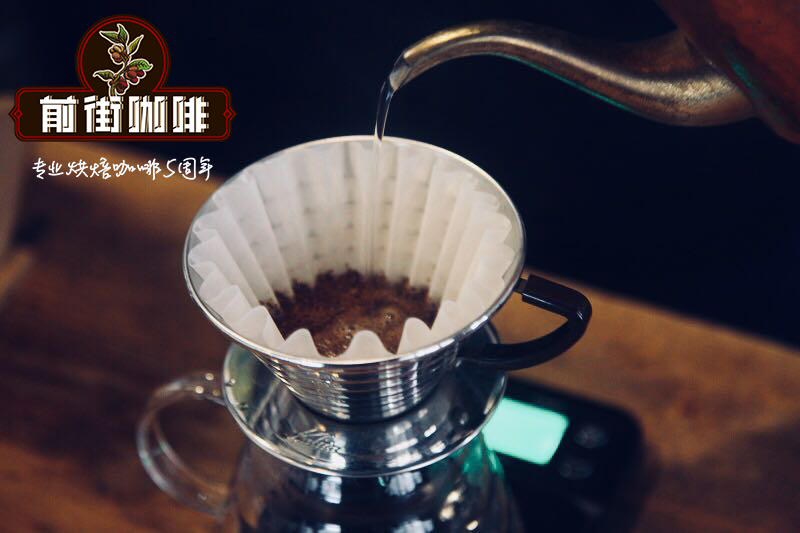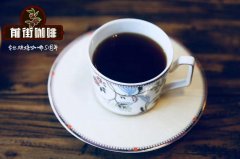Introduction to the brief history of Salvadoran coffee.

Professional coffee knowledge exchange more coffee bean information please follow the coffee workshop (Wechat official account cafe_style)
A brief history of coffee in El Salvador:
In the mid-19th century, El Salvador became independent from Nicaragua after the disintegration of the Union, and its cash crop was mainly locust blue, a crop used to make indigo dyes, until chemical dyes were invented in the mid-19th century. the land was converted to growing coffee. Because of the support of the aristocracy and the background of militarized rule, the political situation was relatively stable, and the coffee industry also led to the development of the private industry. In the 1880s, it even became the fourth largest coffee producer in the world. The civil war broke out in 1980, which had a great impact on coffee production and trade.
El Salvador flew to the branches to be a Phoenix:
In recent years, due to the civil war to retain the original varieties, but also with the Japanese Coffee Research Institute to cultivate mixed-race bean "Pacamara" (Pacamara), this new variety combines two Arabica hybrid varieties: elephant beans (Maragojipe) and Pacas (Pacas), in the international "extraordinary cup" auction, it only took four years to get through all the way, and won the first to fourth place in 2007!
El Salvador Coffee Mini File:
The main method of treatment is washing, and part of it is picking and sunbathing. The main varieties are: Arabica, there are: bourbon, Pacas, Pacamara … Wait. The production season is from October to March. It is currently the 15th largest coffee producer in the world.
Altitude classification:
El Salvador still uses altitude classification, which has nothing to do with quality or production and marketing experience, and is divided into three levels in terms of topography.
How to distinguish the elevation classification:
Strictly High Grown (SHG): grow more than 1200 meters above sea level.
Hight Grown (HG): over 900m above sea level.
Central Standard: plant more than 600m above sea level.
Salvadoran coffee features:
El Salvador coffee is full-bodied, full-bodied and sweet, with aromas of dried fruit, citrus, chocolate and caramel. It is most famous for its sweet and supple acidity, which is very symmetrical and harmonious.
Important Notice :
前街咖啡 FrontStreet Coffee has moved to new addredd:
FrontStreet Coffee Address: 315,Donghua East Road,GuangZhou
Tel:020 38364473
- Prev

Coffee producing area-Central America. Introduction of coffee producing areas in Central American countries.
For more information on coffee beans, please follow the Coffee Workshop (official Wechat account cafe_style) the land bridge between Central and South America. There are seven countries, namely, Belize, Costa Rica, El Salvador, Guatemala, Honduras, Nicaragua and Panama. Coffee is produced in seven Central American countries, including Guatemala, Costa Rica and Hongdu.
- Next

El Salvador Coffee beans El Salvador Coffee producing areas introduce El Salvador Hot Spring Coffee
Professional coffee knowledge exchange more coffee bean information please pay attention to the coffee workshop (Wechat official account cafe_style) active volcanic activity brings mineral-rich volcanic ash to the country, mainly volcanic ash in the soil, more minerals, less organic matter, therefore, in order to maintain the location and make up for the lack of organic matter, sa farmers will use the treated coffee bean pulp residue
Related
- Beginners will see the "Coffee pull flower" guide!
- What is the difference between ice blog purified milk and ordinary milk coffee?
- Why is the Philippines the largest producer of crops in Liberia?
- For coffee extraction, should the fine powder be retained?
- How does extracted espresso fill pressed powder? How much strength does it take to press the powder?
- How to make jasmine cold extract coffee? Is the jasmine + latte good?
- Will this little toy really make the coffee taste better? How does Lily Drip affect coffee extraction?
- Will the action of slapping the filter cup also affect coffee extraction?
- What's the difference between powder-to-water ratio and powder-to-liquid ratio?
- What is the Ethiopian local species? What does it have to do with Heirloom native species?

